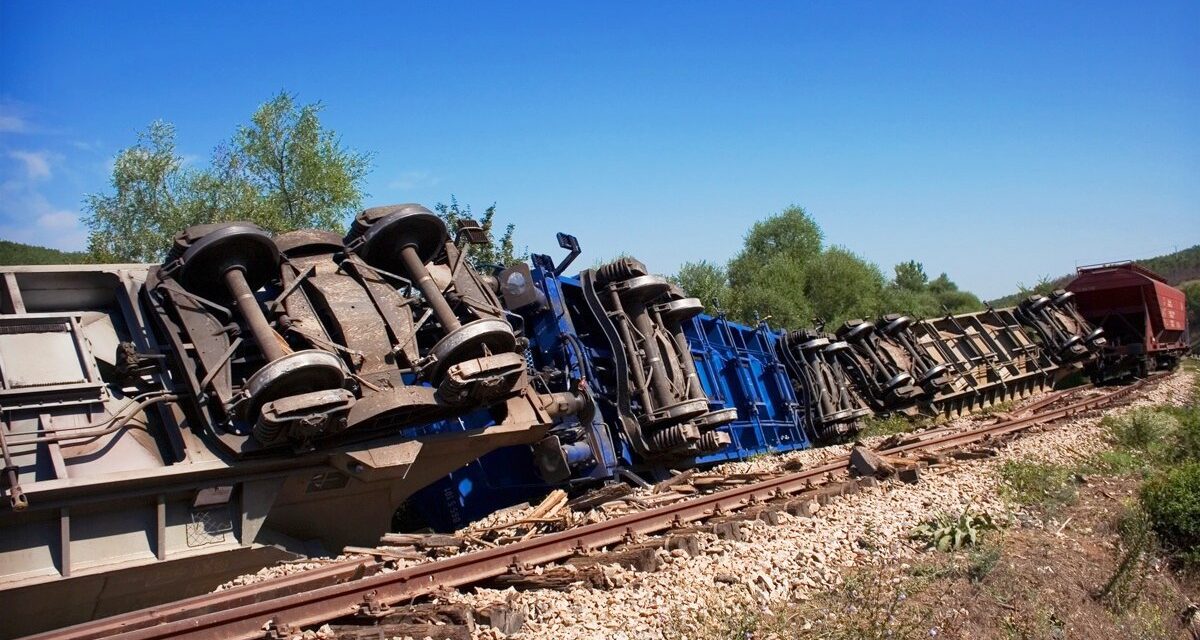Common Railroad Accidents and the Types of Claims Railroad Employees May Be Entitled To After a Workplace Injury
Railroad employees face hazardous working conditions on a daily basis, often working around heavy machinery, moving trains, and hazardous materials. These risks can lead to serious accidents that leave workers with life-altering injuries. In the United States, railroad employees are protected under the Federal Employers Liability Act (FELA), which allows them to seek compensation for injuries sustained on the job due to employer negligence.
In this blog, we’ll explore some of the most common railroad accidents that occur and the types of claims employees may be entitled to after suffering these injuries.
Common Railroad Accidents
Due to the dangerous nature of railroad work, employees are exposed to a variety of risks, from physical accidents to long-term exposure to harmful substances. Below are some of the most common railroad accidents and injuries:
1. Train Collisions and Derailments
Collisions and derailments are among the most catastrophic accidents in the railroad industry. These incidents can occur due to faulty equipment, human error, or failure to follow safety protocols. Train collisions and derailments often result in severe injuries, including broken bones, spinal cord injuries, and traumatic brain injuries (TBI).
2. Slips, Trips, and Falls
Railroad employees often work on uneven surfaces, near tracks, or in rail yards where the risk of slipping or tripping is high. Wet or icy conditions, improperly maintained walkways, or loose debris can all contribute to slip-and-fall accidents, which may result in broken bones, sprains, or head injuries.
3. Exposure to Hazardous Materials
Many railroad workers handle or are exposed to dangerous chemicals and materials during their shifts. Long-term exposure to substances such as asbestos, diesel fumes, or toxic chemicals can result in serious illnesses, including respiratory diseases, mesothelioma, and cancer. Workers may not notice the effects of exposure immediately, but long-term health complications can develop later.
4. Repetitive Motion Injuries
Railroad work often involves repetitive tasks, such as lifting heavy equipment, operating machinery, or performing inspections. Over time, these repetitive motions can cause injuries like carpal tunnel syndrome, back injuries, and tendonitis. These injuries are often referred to as “cumulative trauma” injuries, and they can significantly affect a worker’s ability to perform their job.
5. Being Struck by Objects or Equipment
Railroad workers are frequently in close proximity to heavy equipment, moving trains, and tools, all of which can lead to accidents. Being struck by a train or equipment can cause traumatic injuries, such as fractures, amputations, or crush injuries, often requiring extensive medical care.
6. Mechanical and Equipment Failures
Defective or poorly maintained equipment can lead to serious accidents. Whether it’s malfunctioning brakes, broken couplings, or faulty cranes, equipment failures put workers at high risk for injury. These accidents can result in severe injuries such as burns, electrocution, or dismemberment.
Types of Claims Railroad Employees May Be Entitled To After an Accident
Railroad employees who are injured on the job are not covered by traditional state workers’ compensation systems. Instead, they are protected by the Federal Employers Liability Act (FELA), which allows them to file claims for damages if they can prove that their employer’s negligence played a role in their injury. Here are some common types of claims railroad employees may pursue:
1. Medical Expenses
Injured railroad employees can seek compensation for both past and future medical expenses. This can include the cost of surgeries, hospital stays, physical therapy, medications, and any other medical treatments related to the injury.
2. Lost Wages
Employees who are unable to work due to a railroad injury can claim compensation for lost wages, including the pay they missed during their recovery and any future wages if the injury prevents them from returning to work in the same capacity.
3. Pain and Suffering
FELA claims allow railroad workers to seek damages for physical pain and emotional suffering caused by their injuries. This compensation is meant to address the long-term impact that the injury has on the worker’s quality of life.
4. Permanent Disability
If a railroad accident results in a permanent disability, such as the loss of a limb or the inability to return to work, workers can file claims for permanent disability. This includes compensation for the impact on the worker’s ability to earn an income and enjoy life as they did before the accident.
5. Wrongful Death Claims
In the tragic event that a railroad worker loses their life in a workplace accident, their surviving family members may file a wrongful death claim. This type of claim seeks compensation for funeral expenses, lost income, and the emotional suffering of the deceased’s loved ones.
How an Experienced FELA Attorney Can Help
Filing a claim under FELA can be complex, as it requires the injured worker to prove that the railroad company or its employees were negligent in some way. This can involve demonstrating that the employer failed to provide a safe working environment, failed to properly maintain equipment, or violated safety regulations.
At [Your Law Firm Name], our experienced personal injury attorneys are well-versed in handling FELA claims and understand the unique challenges that railroad employees face. We will work to:
- Investigate the circumstances of the accident to determine if employer negligence played a role.
- Gather evidence such as witness statements, safety records, and medical reports to build a strong case.
- Negotiate with the railroad company or its insurance provider to secure the maximum compensation you deserve.
- Represent you in court if a fair settlement cannot be reached.
Contact Us Today for a Free Consultation
If you or a loved one has been injured in a railroad accident, it’s important to act quickly to protect your rights. Our dedicated team of personal injury attorneys is here to help you navigate the legal process and pursue the compensation you deserve under FELA.





